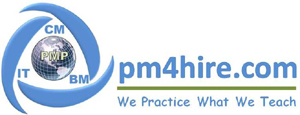

In-house Workshops & Seminars
Delivering the training programs outlined on this website can take different forms. Alternatives to this kind of training can be found in vocational college training, community college training, and even at the university level. There is not one best alternative to select from – much depends on the circumstances the student faces while they perceive the need for specific training. Ideally training is provided through the workplace – a mode we gladly support because it defined the commitment of the employer to help employees move forward in their career. While there are potential benefits from a college training program, in that colleges can offer diplomas or even degrees, we elected to take a less formal route because at a college level the student must make a major commitment to put everything on the line (either you get your diploma or you are out of luck).
Having seen the challenges (and sometimes the hardship) of students trying to cope for student loans under a somewhat draconian regime, where students faced hard choices like looking after a sick child or facing penalties for being absent from school, we opted for a more flexible format that enables students to “earn while they learn” or to better reconcile family responsibilities with career development. After witnessing an unprecedented move by the government to shut down a college and leave students in a bind to foot the bill for an incomplete program of study we became even more focused on delivering an alternative mode of education that would enable students to bypass this trap completely. That does not mean there is anything inherently wrong with different types of college training programs and/or the potential of colleges deciding to add parts of our program to their curriculum. It means there is a great opportunity for business organizations to use education as an in-house employee benefits program.
Establishing a Training Capability TDIH_ETC
All our courses are available to corporate training centers on an annual subscription based on the volume of training you may want to provide. There are many benefits from establishing courses in-house, because you can develop a workforce that is better educated for a lot less than what it costs to replace current employees with new-hires that have more education, but that are new to your workplace. The design of our course curriculum is aimed at being able to implement that training in a corporate setting as easily as it can be deployed in a career college or private college setting, or in a much less formal setting that can benefit many prospective students for whom a rigid attendance schedule is a major obstacle. Indirectly corporate training can, therefore, have a beneficial impact of supporting a much larger prospective student base than just the employees.
Establishing Workshops TDIH_EWO
A more casual alternative to a formal training center is to establish workshops in conference- or meeting rooms in a way that is less ambitious than to make a full-out commitment. The basics of the corporate benefits and employee benefits are similar to what we explained in the section on how to “Establish a Training Capability” that you should review before you consider these alternate formats of delivering basic training.
Workshops are designed to deliver hands-on experience in how things work in the workplace. It is typically composed of two parts: the theory and the practical application. Since you provide the workshops in the workplace the latter is less of a problem than it is for most colleges, so the employees can benefit from having a mentor or coach demonstrate how things are done right, a major factor in promoting workplace safety. In an industrial setting those workshops will have to be customized to the needs of the company, and cover the company operating procedures.
Establishing Seminars TDIH_ESE
Seminars are usually arranged for special venues and/or occasions, typically to justify a business expense under a training budget. It is not a bad idea to combine functions and have formal and informal events at the venue. The focus of the seminar can be employee based, management, or customers (or a combination of all), and that may impact on the venue selection. Depending on the nature of your business, seminars may be seasonal (like tax preparation courses) or operate year-round. Seminars can have a single focus (only one course being offered) or you can offer a range of courses (again, they could all have some marketing benefit) to spread awareness of the full scope of your lines of products and/or services. You may organize an entire program or offer specific seminar sessions as part of a larger seminar program that is commercially produced.
Corporate Training Program TDIH_CTP
There is an increasing interest for corporations to want to provide an in-house opportunity for employee advancement. This course reviews the business case for corporate involvement in training, and the steps that corporations should take to provide in-house support through different learning options. This course is intended as a “consultation and review” of the options that are available to build a more capable workforce, as well as to help that workforce if necessary to prepare for a pending downsizing program. Note that there is an alternative option to use our self-study training programs that can be sponsored by employers.
The issue of what to do with the existing workforce is a complex challenge because you need to retain a workforce to support the old technology while the organization transitions to newly installed technology that is destined to replace it. This creates a curious double standard because we do not want to hang on to old equipment for any longer than necessary, but somehow we do not see that the people working on that old equipment represent a completely different issue. How do we see companies respond?
Establishing Classroom Training TDIH_ECT
Corporate training facilities can be organized like regular classrooms, rather than meeting rooms, and operated continuously to provide an economic alternative to sending employees to various outside agencies or training centers. This is not a minor undertaking – we can help you explore various options and alternatives that may result in a formal training center or an arrangement for the use of a training center in a time-share arrangement. There is not one solution that fits all, much depends on your planned training needs: we can help you to perform a needs assessment and to develop a business case that explains and justifies the overall goals and objectives while providing alternate options if available. Corporate training facilities send a strong message about your approach to employment and quality standards that will be recognized in your industry.
 |
|